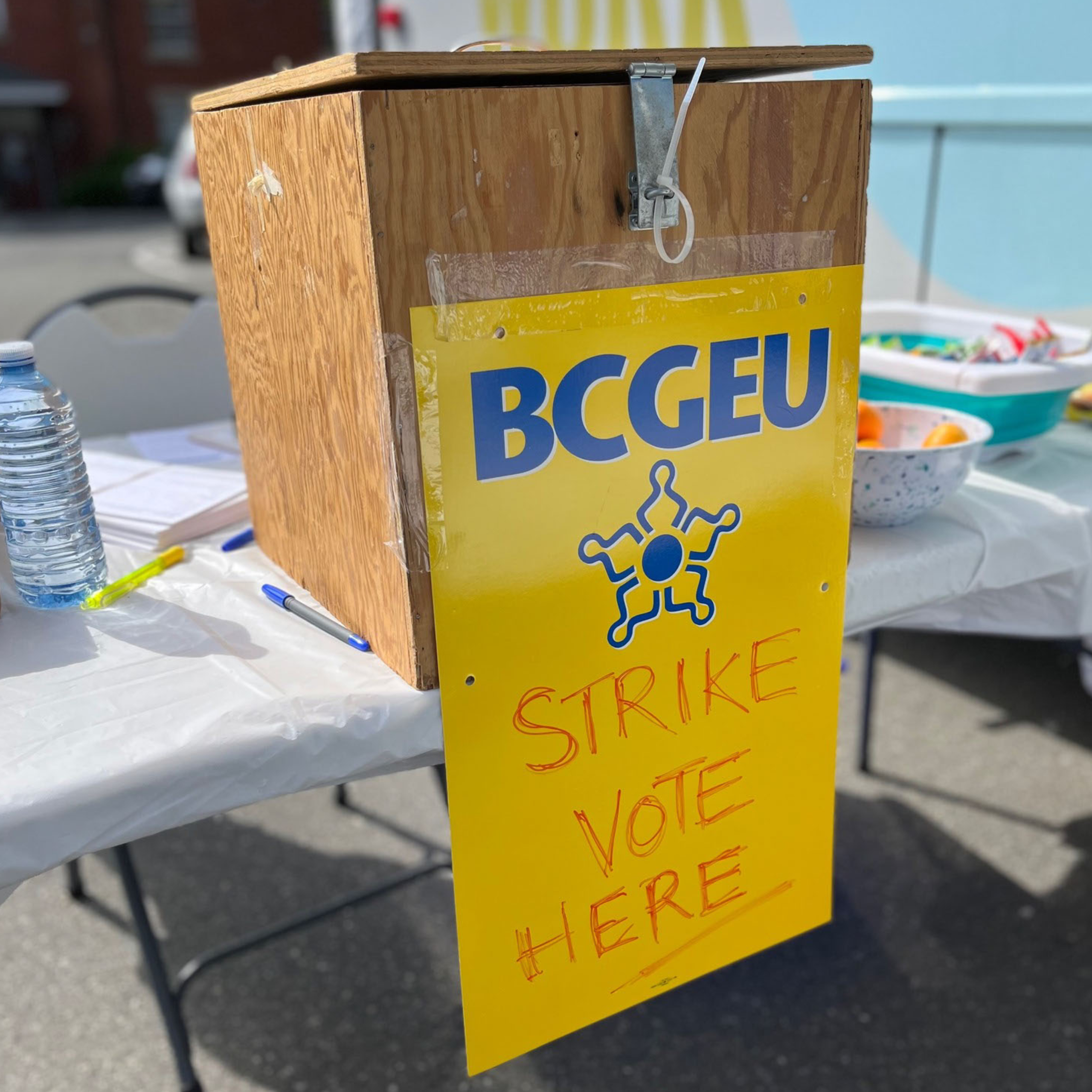By Kimball Cariou
Just as the NDP majority in the BC Legislature starts to choose a new premier, a potential strike by 33,000 public sector workers is moving closer. Soon after John Horgan announced he will step down due to health reasons, negotiations between the BC General Employees’ Union (BCGEU) and the Public Service Agency broke down. Union members from clerical workers to forest firefighters voted 94.6 per cent in favour of job action in late June. BC’s 8.1 percent inflation rate has been a key issue.
The government has failed to provide a counter-offer to the union’s proposal to include cost of living adjustments (COLA) and wage protection from inflation, even while working “within the fiscal framework” of the government’s most recent wage proposal.
“To say we are disappointed is an understatement: despite our best efforts to bridge the gap, government has refused to table a proposal that meets our members’ key demand of cost-of-living protection,” said Stephanie Smith, BCGEU President. “Our members have told us since the beginning of this round of bargaining that they would not ratify a deal which did not address the increasing cost of living.”
In effect, the NDP’s most recent wage proposal would mean a pay cut, despite having $16 billion in unallocated reserves in the province’s most recent fiscal plan.
The BCGEU is now planning “strategic, targeted job action” and meeting with the Labour Relations Board to finalize essential services during job actions. That process is complex, since the legal definition of an essential service is different from what was deemed essential during the pandemic. The BCGEU must give 72 hours notice before any walkout, which could happen soon if talks remain stalled.
Many other unions are now in bargaining talks with the province. In total, almost 400,000 public sector workers have agreements that have already expired, or will later this year.
“Our province was in an affordability crisis before the pandemic and before inflation started to skyrocket last year,” says Smith. “Any wage offer that doesn’t include COLA (cost of living adjustment) protection is a wage cut, and no worker should have to accept a pay cut.”
While the corporate media is trying to whip up a panic over the “massive” cost of a pay increase, the reality is quite different. One media talking head reported that a five percent increase in each of the next two years would cost the treasury about $4.65 billion for unionized workers and another $1.1 billion for non-unionized employees.
But an economist with the BC Centre for Policy Alternatives suggests that the province still has “plenty of budgetary room” to manoeuvre, since governments here have a long history of underestimating how much money they will have at the end of the fiscal year.
“In the past two years, deficits have been roughly $7 billion and $9 billion smaller than projected, respectively,” Hemingway writes, adding that the province underestimated its fiscal position in 16 of the past 20 budgets, both under the Liberals and now the NDP.
He says the practice of “lowballing” economic forecasts (such as by underestimating resource revenues) creates a bias against public spending and distorts debates about fiscal priorities.
Hemingway estimates that a “5-5-5” deal over three years would mean a cumulative outlay of about $9.6 billion, while contingency and forecast allowances alone add up to $16.2 billion over the same period. If operating spending as a percentage of gross domestic product returned to 1999/2000 levels, he says the province would have about $8.5 billion more annually for crucial social and environmental investments.
These figures also leave out the potential revenue from reversing the huge tax breaks given to corporations and high-income earners after the Campbell Liberals were elected two decades ago. The tax breaks are estimated to cost the provincial treasury at least $3 billion annually.
[Photo: BCGEU Facebook page]
Get People’s Voice delivered to your door or inbox!
If you found this article useful, please consider subscribing to People’s Voice.
We are 100% reader-supported, with no corporate or government funding.




